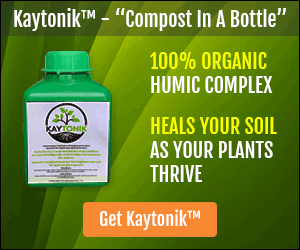When you’re searching for healthy food for your family in the grocery store do you tend to find yourself looking at fresh produce in the organic section? When you’re at the local farmers market do you ask how they grow their produce? A common misconception is that organic farmers don’t use chemicals at all.
Organic means no synthetic chemicals are used but there are many natural chemicals that organic farmers can use for disease and pest issues. There are radical differences between these two kinds of chemicals.
Synthetic Chemicals
Conventional farmers use many different types of synthetic chemicals. Synthetic chemicals are “man-made” and, although they contain elemental ingredients, they don’t include carbon. All synthetic chemicals are inorganic.
According to the United States Environmental Protection Agency there are eight types of pesticides. Pesticides are defined as a substance that controls pests, whether microscopic, insect or vegetative.
- Insecticides
- Herbicides
- Rodenticides
- Fungicides
- Attractants
- Plant defoliants
- Plant growth regulators (1)
These are all used in conventional agriculture at one time or another. Some of them are more toxic than others. Some of these substances, such as disinfectants, are used in our homes daily. But they are also used on conventional farms to clean produce for market. The use of these chemicals creates pesticide residues that can’t be completely washed off.
Health Problems From Synthetic Chemicals
Synthetic pesticides often use endocrine disruption as their mode of operation in pest reduction. Organophosphates, such as glyphosate, have been found to cause that same effect on humans. Genetically modified crops (GMOs) are routinely sprayed with glyphosate.
A study conducted by NL Swanson et al on the correlation between glyphosate, GMOs, and human health showed connections between synthetic chemicals and human illnesses such as Parkinson’s, Alzheimer’s and cancer, to name a few. (2)
Natural Chemicals
Many of the same pests and diseases are found on organic farms as on conventional farms. But how they are dealt with is a different story.

Organic farmers use natural chemicals, derived from biological and natural sources. The National Organic Program (NOP) lists all allowed and prohibited substances so, as a consumer, you know only certain natural chemicals may be applied to your food while growing, shipping, processing, or in the store to be sold with the organic seal. (3)
To avoid contamination that may occur on an organic farm from neighboring farmers who are farming conventionally, the NOP has requirements that “…buffer zones must be established to prevent drift, runoff, or any other source of unintended contamination of an organic crop…” (4)
Crop rotations, necessary for organic certification, help build a diversity of soil microorganisms which increases the farm’s organic production. Green manures, or cover crops, add organic matter and, in the case of legumes, nitrogen. The use of compost and composted manure are part of the NOP and are used instead of synthetic fertilizers.
Some soil types, and some crops, need more trace minerals than others. The NOP lists which ones can be used and in what situations. When a restricted substance has been used a farmer can’t usually sell it with the organic label.
No Natural Chemicals That Harm?
We have known for centuries that certain natural chemicals can harm or even kill us. Many plants create toxic chemicals as a defense mechanism. The toxicity isn’t usually enough to kill a human but it will deter a bird from eating the seed. The chemical solanine is an alkaloid found in green potatoes. It makes the potato bitter and causes solanine poisoning if eaten, according to the Michigan State Extension Center. (5)
There are also chemicals, or minerals, in the soil that are harmful to humans. Soil contaminated with lead, copper, or arsenic should not be used to grow crops. These minerals accumulate in plants, so when we eat the crops, we are ingesting the poison. (6)
Conventional farmers use farming practices that, over time, degrade their soil and add synthetic chemicals. More research needs to be done on the long-term effects of any soil additives. Until that research is done I’m going to spend my money in the organic section of the store and always ask the grower at the farmers market what farming practices are used.
You can read about Degenerative vs. Regenerative Agriculture to understand the different farming methods.
- https://www.epa.gov/ingredients-used-pesticide-products/types-pesticide-ingredients
- Swanson NL, Leu A, Abrahamson J, Wallet B. Genetically engineered crops, glyphosate and the deterioration of health in the United States of America. J Org Syst(2014) 9:6–37
- https://www.ams.usda.gov/rules-regulations/organic/handbook
- https://eorganic.org/node/722
- https://www.canr.msu.edu/news/solanine_poisoning_how_does_it_happen
- https://portal.ct.gov/CAES/Fact-Sheets/Plant-Pathology/Poisonous-Plants















